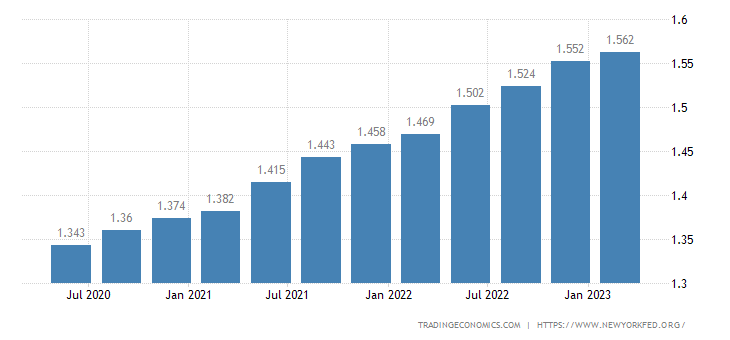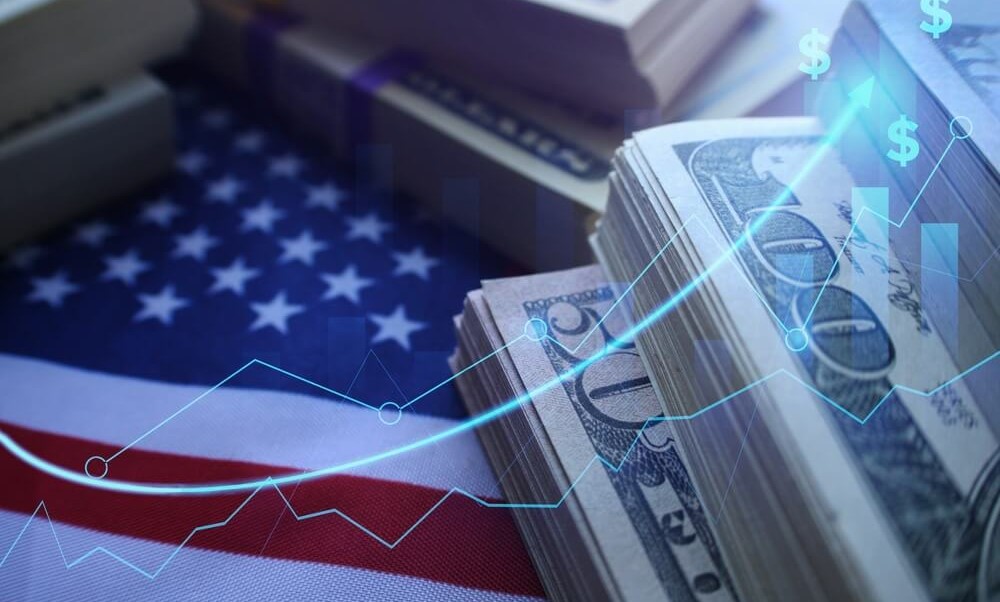Introduction:
The United States IBD/TIPP Economic Optimism Index provides us with a window into the hearts and minds of ordinary Americans, offering invaluable insights into their thoughts and feelings about the state of the economy. Let’s dive into the latest findings from June 2023, where we witness a slight uptick in the index, reaching 41.7, up from 41.6 in May. While this increase may seem small, it’s essential to recognize that the index remains significantly below the 50 benchmarks, indicating a prevailing sense of caution and uncertainty among the population. However, when we turn to market forecasts, a glimmer of hope emerges, with a more positive outlook projected at 45.2. In this article, our goal is to breathe life into these numbers, humanize them, and truly understand the economic perceptions of everyday Americans. We will delve into their hopes and dreams for the future, their honest assessments of the current state of the economy, their support or lack thereof for federal economic policies, the impact of these policies on their personal finances, the deep concerns they harbor about inflation, and the very real challenges they face in terms of wage trends. By infusing these statistics with the human experience, we can gain a richer and more empathetic understanding of the complex factors that shape the economic sentiment of individuals across our great nation.

Americans’ Six-Month Outlook and Perceptions of the Current Economy:
The June 2023 survey uncovers a disheartening decline of 0.3% in Americans’ six-month outlook, reaching a disheartening 34.5. This decrease reveals the prevailing sense of apprehension and uncertainty among survey respondents, painting a rather gloomy picture of their expectations for future economic conditions. It is important to acknowledge that a significant portion, 51% of respondents, still believe that the economy is trapped in the clutches of a recession. Encouragingly, though, this marks the lowest percentage since May 2022, hinting at a slight glimmer of optimism amidst the prevailing concerns. However, the fact that only 25% of respondents anticipate any improvement in the near future speaks volumes about the cautious and skeptical mindset that dominates discussions on the current state of the US economy. This intricate tapestry of figures reflects the intricate and nuanced sentiments held by everyday Americans as they grapple with their hopes and fears for the economic landscape that lies ahead.

Support for Federal Economic Policies:
The heartbeat of public sentiment towards federal economic policies can be measured by the IBD/TIPP Economic Optimism Index. Unfortunately, in June 2023, this index took a distressing nosedive, plunging by 3.5% to a worrisome 38.6. This staggering decline brings us to the lowest level since August of the previous year, painting a disheartening portrait of the current state of public support for these policies.
The decline in support can likely be attributed to recent decisions that have left a bitter taste in the mouths of the American people. One such decision is the debt-ceiling deal, which, among other things, signaled the end of the moratorium on most student-loan payments later this summer, after a prolonged duration of over three years. These policy changes have had a palpable impact on public sentiment, shaping their perceptions of the government’s handling of the economy.
As we humanize these numbers, it becomes evident that the decline in support for federal economic policies reflects the tangible concerns and frustrations experienced by everyday Americans. The decisions made by policymakers directly affect their lives, livelihoods, and aspirations. Thus, it is essential to empathize with their reactions and recognize the weight of their voices in shaping the future direction of economic policy.

Personal Finances and Economic Comfort:
While Americans express concerns about the state of the economy, the subindex measuring personal finances increased by 3.6% to 51.9 in June 2023. This suggests that individuals are experiencing relative stability in their own financial situations. However, it is important to note that this increase does not necessarily indicate overall economic comfort. As Ed Carson, IBD’s news editor, states, “People are a long way from feeling comfortable with the state of the economy.” The divergence between personal finances and broader economic sentiment reveals the complex dynamics at play.
Inflation Concerns and Wage Trends:
The June 2023 survey highlights significant concerns about inflation, with 89% of respondents expressing worries. This reflects the prevailing global economic climate, where inflation has become a prominent issue. Moreover, only 22% of respondents believe that wages are keeping up with inflation, underscoring the challenges faced by individuals and families as prices rise. This disparity between wage growth and inflation rates can contribute to economic uncertainty and erode consumer confidence.
Conclusion:
The United States IBD/TIPP Economic Optimism Index for June 2023 sheds light on the multifaceted economic sentiment among Americans. While the overall index experienced a slight increase, it remains below the benchmark indicating optimism. Americans’ six-month outlook declined, reflecting a more pessimistic view of the future. The perception of the current economy is mixed, with fewer respondents considering the economy to be in a recession but only a quarter expecting improvement. Support for federal economic policies reached its lowest level, potentially influenced by recent policy decisions. Personal finances demonstrated modest growth, yet overall economic comfort remains elusive. Concerns about inflation persist, and trade signal





